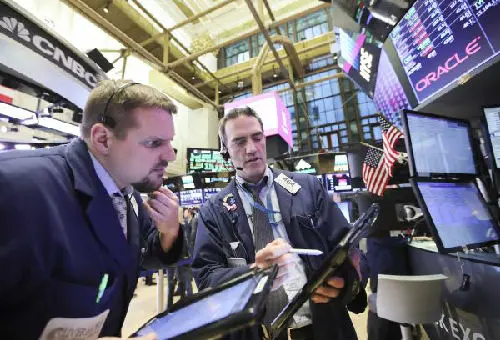“France is in the air” – so states the slogan of Air France – well, not so much at the moment. Similar to the national railroad service, select universities and garbage collectors, France’s largest aviation company is on strike right now, resulting in 30 percent of the flights being canceled. Like the trains of the Societe nationale des chemins de fer francais (SNCF), the planes of Air France are disrupted two days a week, as per a system that is called "slowdown." This has been poetically titled “une greve perlee” (a pearl strike) by the French. The strategy has several objectives: It decreases the productivity of a country without blocking it, allows the users to organize themselves and the protest to last longer.
But why are so many sectors impacted by the strike right now? The union wants to make the reform of the SNCF a symbol for the public opinion. By reforming the French rail system, Emmanuel Macron is not only targeting one public state company, but also putting at risk the entire French public service, which is vital for the French. As a result, many have joined the fight with their own claims, even if some stress that it is a mere coincidence.
In the case of Air France, the employees are fighting for better wages. The trade unions say that the salaries have not been upgraded enough despite the efforts of the employees to save a company that is in a very bad state. To put it simply, since 2011, the staff working for Air France has gone from 58,000 employees to 29,500 and the wages did not rise.
Members of European Parliament (MEPs) display placards to protest the military strike on Syria launched by the US, UK and France, April 17, 2018. /VCG Photo
Those figures may explain the very tense situation in the company recently, as we have seen with the tragic event of the “chemise arrachee” (ripped off shirt), as we call it in France. In 2015, French people were in shock as they discovered the director of human resources of Air France was mauled by some workers during a failed attempt to negotiate a downsizing plan. Those images were shared around the world, including the cover of The New York Times and El Pais, explaining what it meant to “negotiate a la francaise.” Twelve employees are still on trial for “violence and damages.”
With the grounded flights, the union also wants to show the French president a united front against the executive plan to “transform” France into a competitive and modern state. Since he was elected almost one year ago, Emmanuel Macron has implemented many reforms, the most important being the labor code, liberalizing the rules surrounding companies and downsizing the rights of the workers.
So far, we have not seen the usual huge demonstrations that former presidents Jacques Chirac, Nicolas Sarkozy and Francois Hollande had to face. Right or left, every head of state has had to step back for one of their big reforms. But Macron did not experience many demonstrations in French streets. He decided to move forward and faster at the beginning of 2018, and many in the British media started to compare him to their former prime minister Margaret Thatcher, called the "Iron Lady," who conducted many reforms in the 80s in the United Kingdom and broke the union protest.
Employees of Lyon's hospitals take part in a "die-in" in front of Lyon's town hall to protest working conditions, April 16, 2018. /VCG Photo
The strike is clearly not over, and anger is growing among the French. A few weeks before the country celebrates the 50th anniversary of the May 1968 events, France looks back to the past. At the time, the whole country was paralyzed by the students’ revolt, asking to change society and for more freedom. Facing the fear of a global uprising, President Macron decided to give two interviews, to reassure his nation and to promise that he will continue to clean the public economy with a budget deficit going under 3 percent for the first time in 10 years.
Seeing the growing conflict in their company, Air France’s leadership, who claim the company has lost over 170 million euros in the seven days of strike, offered a wage increase of 2 percent that would rise to 5 percent within three years. “Totally obscene,” replied trade unions, who countered with an increase of 5.1 percent immediately.
At the moment, both the union and the government are trying to gain the public’s support. This week, 30 organizations of commuters gathered to ask for a full refund of their monthly subscriptions. According to a poll by IFOP, 46 percent of the French consider this social movement "justified," which is a 4 percent increase from last month.
The “Iron Man” Macron, must be careful. If he refuses to negotiate and this situation of paralysis continues in his France of 2018, the country risks staying grounded for quite a while to come.
(CGTN)
 简体中文
简体中文





